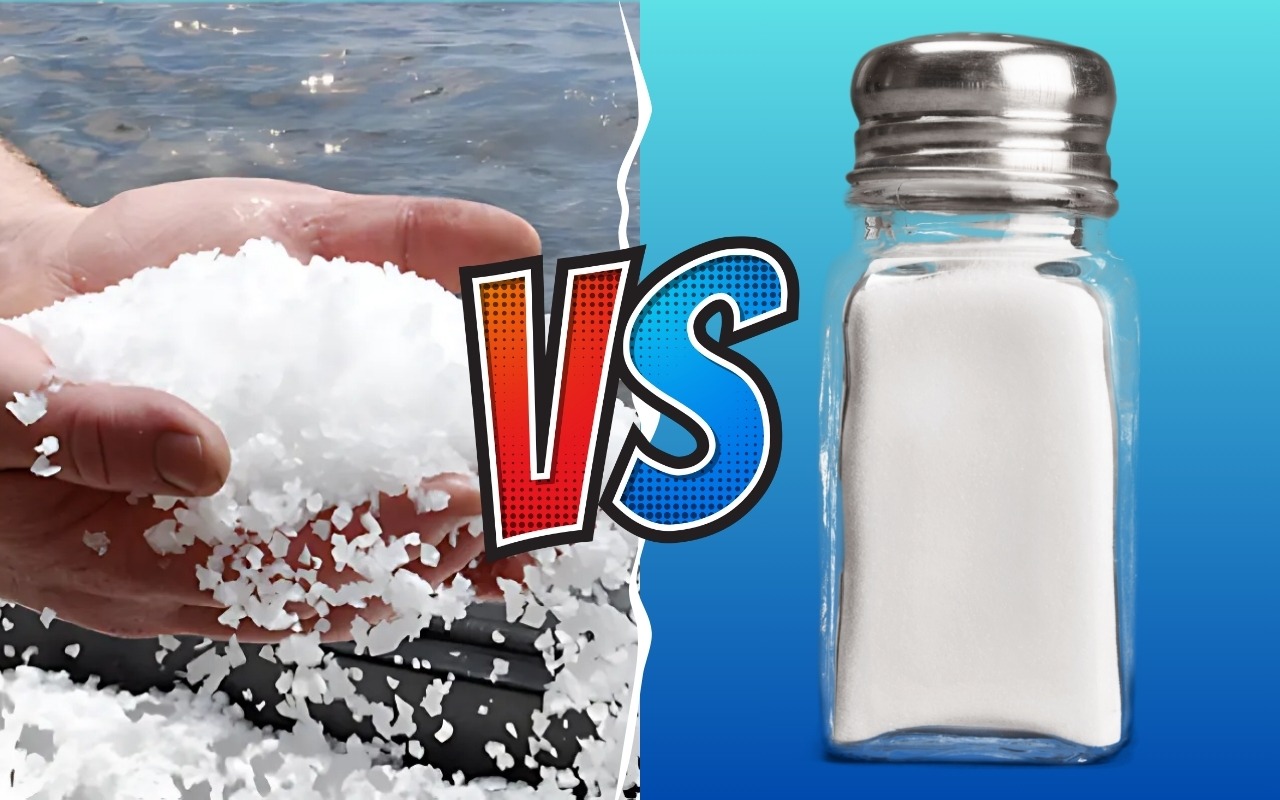
At SterlingMedicalCenter.org, our team is committed to providing science-based guidance on nutrition and wellness. Sea salt, often considered a healthier alternative to table salt, has gained popularity for its perceived benefits in culinary, therapeutic, and wellness practices. This article delves into the medical insights surrounding sea salt, including its benefits, practical uses, and potential risks, to help you make informed decisions about incorporating sea salt into your daily routine.
What is Sea Salt?
Sea salt is produced through the natural evaporation of seawater, resulting in minimally processed salt crystals that retain trace minerals such as potassium, magnesium, calcium, and iron. Unlike refined table salt, which undergoes extensive processing and often includes additives like anti-caking agents and iodine, sea salt maintains a natural mineral profile.
Sea Salt vs. Table Salt: Key Differences
| Feature | Sea Salt | Table Salt |
|---|---|---|
| Source | Evaporated seawater | Mined from salt deposits |
| Processing | Minimal | Highly processed, additives included |
| Mineral Content | Contains trace minerals | Primarily sodium chloride |
| Sodium Content | ~2,000 mg per teaspoon | ~2,300 mg per teaspoon |
| Uses | Culinary, baths, skincare | Primarily culinary, baking |
Potential Health Benefits of Sea Salt
1. Supports Hydration and Electrolyte Balance
- Sodium, a primary component of sea salt, is essential for fluid balance, muscle function, and nerve signaling.
- Adequate sodium intake is particularly important for athletes, individuals in hot climates, and those engaging in strenuous physical activities to prevent dehydration and electrolyte imbalances.
2. Aids Digestive Health
- Sea salt can stimulate the production of digestive enzymes, promoting healthy digestion.
- Warm salt water solutions, also known as salt water flushes, are sometimes used to relieve constipation and support gut health.
3. Promotes Skin Health
- Sea salt baths are a common home remedy for soothing skin conditions like eczema, psoriasis, and dry skin.
- Mineral-rich sea salts, especially those from the Dead Sea, contain high levels of magnesium, which may improve skin hydration and reduce inflammation.
4. May Support Oral Health
- Saltwater rinses are recommended by dentists to reduce bacteria, aid in healing oral wounds, and maintain gum health.
Medical Considerations: Potential Risks of Sea Salt
1. Sodium Intake and Heart Health
- Excessive sodium consumption, whether from sea salt or table salt, is associated with high blood pressure and an increased risk of cardiovascular diseases (1).
- The American Heart Association suggests limiting sodium intake to 2,300 mg per day, with an ideal goal of 1,500 mg per day for most adults (2).
2. Bone and Kidney Health Concerns
- High sodium intake can lead to calcium loss through urination, potentially contributing to weaker bones and osteoporosis (3).
- People with kidney disease need to be particularly cautious, as excess sodium can affect kidney function and lead to fluid retention (4).
3. Overuse in Skincare
- While sea salt baths can benefit the skin, frequent or prolonged exposure to high-salt solutions may lead to skin dryness and irritation, particularly in sensitive skin types.
Safe and Effective Ways to Use Sea Salt
1. In the Kitchen
- Use sea salt in moderation when seasoning foods.
- Be mindful of the sodium content, especially when adding salt to packaged foods that may already contain sodium.
2. For Skin Care
- Add 1 cup of sea salt to warm bathwater to help reduce skin irritation and promote relaxation.
- Create a DIY exfoliating scrub by mixing sea salt with coconut oil or olive oil to gently remove dead skin cells.
3. For Oral Health
- Gargle with salt water (1/2 teaspoon of sea salt in 1 cup of warm water) to reduce oral bacteria and soothe sore gums.
Conclusion: Is Sea Salt a Healthier Choice?
While sea salt offers a more natural and mineral-rich option compared to table salt, its health benefits are primarily related to non-dietary uses, such as skincare and oral health practices. When it comes to dietary use, moderation is key, as excessive sodium intake from any salt source can negatively impact cardiovascular and overall health.
At SterlingMedicalCenter.org, we emphasize the importance of a balanced diet, appropriate sodium intake, and informed wellness choices. If you have specific health concerns, such as hypertension, kidney issues, or skin conditions, we recommend consulting with our healthcare professionals to tailor salt use to your individual health needs.
Stay informed, balanced, and healthy!
The Sterling Medical Center Team